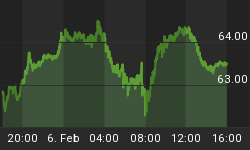The following is part of Pivotal Events that was published for our subscribers August 12, 2015.
Signs of The Times
"There is just no let-up in New Zealand house prices, with prices rising at their fastest pace since 2007."
- Financial Times, August 2.
And now for something rather different. Vehicle sales in Canada have shown a dramatic change in Advance/Declines. On August 5th, Financial Post reported that sales of SUVs and Pickups jumped 8.2%, while those for cars slumped 10.3%. Also, electric-hybrid car sales plunged 22%.
"Debt is funding more acquisitions than ever before. Worldwide acquisitionrelated debt issuance...is the highest on record and triple the amount seen at this time last year."
- Financial Times, August, 4.
"The golden days for shadow banking lenders with high return and low risk are over."
- S&P bank analyst on China as reported by Bloomberg on August 7.
It could soon apply outside of China.
Schlumberger and Halliburton will finance oil explorers - with a "Frack and Pay" program.
- Reuters, August 7.
And without a doubt - one of the best lines ever on a topping market:
"Canaries continue to drop like flies."
- Mark St. Cyr on Zero Hedge, August 7.
Perspective
The above is a rich harvest of observations. We should all be thankful for the rapid dissemination of international comments on what basically is the completion of one huge financial bubble.
However, on major changes in the financial markets the media describe a global event in local terms. First noticed this as the terrible bear market ended in late 1974. It was the worst since the 1930s and in only a couple of trading days stock markets in London, NY and Tokyo bottomed and turned up. In each city, local media provided a local story for the reversal.
It was international.
On the completion of this global bubble, Shanghai completed a fabulous blow-out. The SSEC set the final Upside Exhaustion and high in June. It was accompanied by a set of technical excesses last seen for that index in 2007.
Essentially, these were also seen last week as Disney's fantastic flight abruptly ended.
The chart follows.
What singular stock or overly excited index is next?
Credit Markets
In borrowing the old phrase and adding to it, changes in the credit markets are usually the canary killers.
US credit spreads were likely to narrow into "around May" and they did.
Then and using the same change as recorded in 1998, 2007 and 2008, widening would reverse in June (![]() ), make the initial breakout in early July (
), make the initial breakout in early July (![]() ) and accomplish the serious breakout in late July - early August (??).
) and accomplish the serious breakout in late July - early August (??).
On the later, the spread is at 214 bps. This is the first step on the major breakout towards a severe dislocation in global credit markets. The worst in the panic that eased in December was 213 bps.
The reversal to increasing European interest rates that began in April can be described as a moderate panic. Large losses but a modest reversal. The reversal in the Shanghai stock market in June marked the start a severe crisis. Huge losses for the private sector, but the cost-burden of policymakers trying to prevent the typical initial bust has yet to be calculated.
On July 27th, JNK became the most oversold on the Daily since December. The low was 37.26 and the bounce made it to 38.04. This week the quote has dropped to 37.18, which compares to the panic low of 37.26. Clearly, this is at support and taking it out would do in a few more canaries.
We have been out of lower-grade stuff since a year-ago in June. We seriously shortened term in long-dated Treasuries on the rally into February. Our ideal position has been in the 3 to 4-year high-grade US corporate bonds. Little term or credit risk, plus the pickup on the US dollar.
For traders, Treasuries (TLT) were likely to rally out of the 115 level in early July. The initial target was 120 and once there the next one was the 200-Day ma at 123. Our reasoning was mounting financial concerns and weakening commodities. At 125 now, the action has accomplished an impressive swing on the Daily RSI. This week's action is generating a near-term Sequential Sell.
The move in Long Treasuries is likely maximized and traders should be flat.
On the bigger picture, the habit of aggressively buying long-dated Treasuries on financial distress could have some problems. One is that the gambit has been working for a long time. The other is that there has been an unprecedented loss of liquidity in the long end. And after all, the traditional flight to quality has always been to short-dated instruments in the senior currency and/or gold.
A return to tradition could leave too many central bankers long too many US Treasuries. In which case, academics instructing Wall Street would change to Wall Street instructing academics.
Link to August 15, 2015 Bob Hoye interview on TalkDigitalNetwork.com: http://talkdigitalnetwork.com/2015/08/high-grade-corporate-bonds-good-short-term-bet
http://talkdigitalnetwork.com/2015/08/high-grade-corporate-bonds-good-short-term-bet
Listen to the Bob Hoye Podcast every Friday afternoon at TalkDigitalNetwork.com















